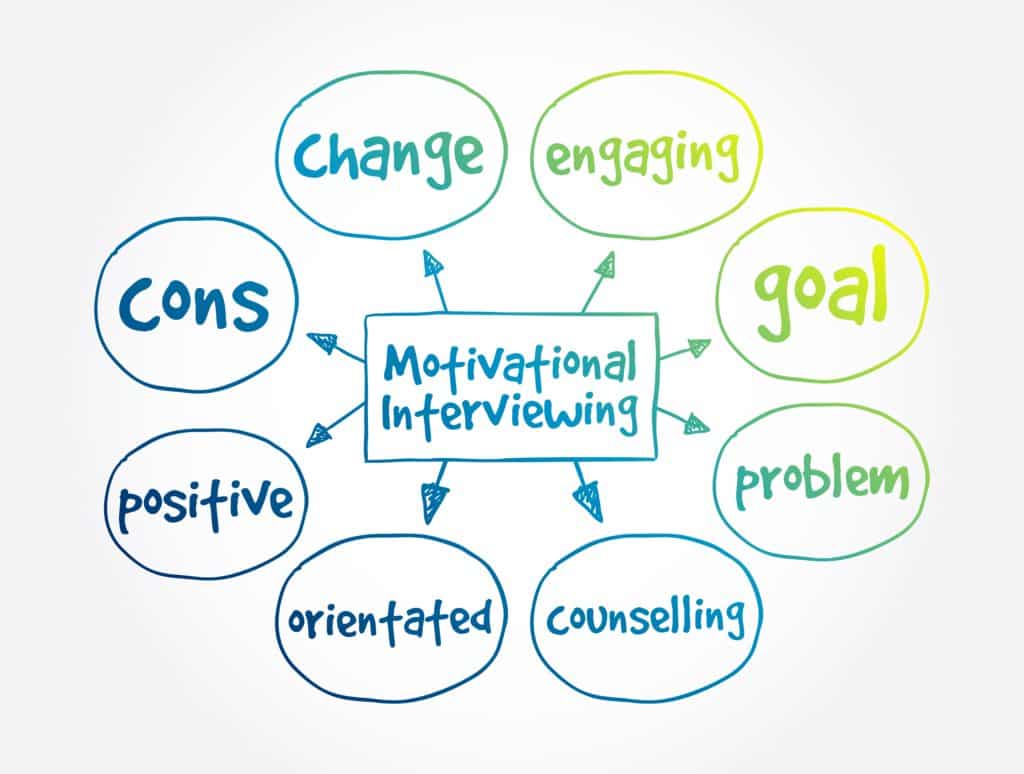Brilliant Ways Motivational Interviewing Reduces Depression + Techniques Used By Therapists

Depression happens to the best of us, and the effects can be dreadful. However, the good news is that there are effective ways or therapies to combat this illness. Some of these therapies include cognitive behavioral therapy, interpersonal therapy, and psychodynamic therapy. Another brilliant solution is motivational interviewing.
Motivational interviewing is patient-driven, and many studies and experts attest to its effectiveness against depression and other mental illnesses. This depression treatment method helps patients find the motivation to make changes that will heal their depression. Unlike other approaches, it is not intrusive, and the patient is more likely to change their lifestyle faster and see results.
This guide explores salient aspects of motivational interviewing (MI) and how it contributes to depression treatment.
Table of Contents
What is Motivational Interviewing?
The concept of motivational interviewing is simple; patients are guided toward lifestyle changes that help improve their condition. MI is a conversation between therapist and patient that motivates the latter to solve their problem. The therapist does little to impose their perspective, which may make the patient apprehensive and defensive.
MI is also an interview-style conversation, with the mental health professional asking questions and making statements based on the patient’s responses. The patient will generally feel comfortable in their seat and talk their way to a tenable and actionable solution.
Most times, patients already know the changes to solve their problem and defeat depression, but they struggle with indecision, fear, or uncertainty, and that’s where motivational interviewing comes in.
How Motivational Interviewing Reduces Depression (Benefits)
There are many benefits of the motivational interviewing method for depression, and that’s why it’s widely used today. Let’s see how it helps against depression.
The Conversation Focuses on the Patient’s Struggles
During motivational interviewing sessions, the focus is on the patient’s issues and challenges. The idea is for the patient to talk through their problems and learn valuable lessons. In the end, the patient understands their challenges better, how they feel about them, and what they should do to get better.
Acknowledgment and Empathy
This is a crucial aspect of motivational interviewing. The therapist is empathetic about what the patient is going through and uses open-ended questions to learn more. That acknowledgment of the struggle and show of understanding makes it easier for the patient to be receptive to the therapist’s guidance.
On-the-Spot Feedback
As the patient shares their story, coping mechanisms, and possible changes they haven’t been able to make, the therapist gives immediate feedback. The feedback can come in the form of positive affirmations or empathy.
Patients Realize They Have the Power to Change
The entire premise behind motivational interviewing is for people to understand that they have the power to change their lives. People with depression get caught up in their problems, and the solution becomes shrouded and seemingly unattainable. MI helps uncover the truth about the patient’s role in freeing themselves from the throes of depression and finding the motivation to live a better life.
How to Use Motivational Interviewing Techniques
The therapist will use a combination of techniques for a successful motivational interviewing session. The mental health professional uses these techniques (OARS) to evoke the patient’s intrinsic motivations for change. Let’s see how they use these techniques.
Asking Open-ended Questions
Open-ended questions allow the patient to express themselves, resolve their ambivalence, and better understand their problem. The therapist will then follow up with other open-ended questions based on the patient’s answers. Some examples of open-ended questions are:
- Describe the way you felt after that action?
- What have you been doing since our last session?
- How would you respond to this situation if it happens again?
- Why do you think it happened?
These questions require an answer that is more descriptive and expressive than “yes” and “no” and encourages the patient to talk.
Offering Affirmations
Affirmations are super helpful for growth, positivity, and self-esteem, and they also play a crucial role in motivational interviewing. The therapist will take note of the patient’s strengths and successes and commend their efforts. The clinician will also show understanding, empathy, and comfort for the tough times and setbacks.
Therapists use this technique to encourage the patient to keep making the right moves—no pressure, persuasion, or cajoling; just affirmations.
Reflective Listening
Reflective listening entails repeating what the patient said. This technique ensures the therapist doesn’t impose their idea for change but lets it flow naturally from the patient.
Furthermore, this technique encourages patients to keep talking, build engagement, and arrive at an idea for change. Also, it helps the clinician clarify what the person said and presents an opportunity for the patient to hear what they have said and reflect on it.
Example:
- Patient: I eat late almost every night and feel bad about it.
- Doctor: So you don’t feel good about eating late almost every night.
Generally, this technique helps the patient feel heard and understood, often leading them to make ideal behavioral changes.
Summarizing
This is the last piece of the OARS acronym. A summary helps the patient identify the real problems and hear themselves talk about change. The therapist will recount the key aspects of the conversation and check to see that nothing is lost in translation.
And the doctor can end by evoking self-motivational statements from the patient by asking an open-ended question about the next steps. Example:
- How do you plan to improve with everything you’ve said?
- Are there any changes you should make to change the status quo?
How to Learn Motivational Interviewing
Learning motivational interviewing takes time, practice, patience, and discipline. You will have to combine personal study with other hands-on, practical steps. The different ways to learn MI include:
Private study: Get books and other materials and study the principles associated with motivational interviewing.
Attend Workshops: Join workshops and listen to seasoned clinicians teach aspects of MI.
Individual or Group Coaching: Attend individual or group coaching sessions and learn from consultants with MI skills and practical experience. Participate in discussions and on-the-spot presentation of practice samples and get actionable feedback.
If you stay committed to mastering a skill in motivational interviewing, you will. And with it, you can help clients make crucial changes that will better their life.
Wrap Up
Motivational interviewing for depression is a practical approach to treating depression and other mental conditions. If you or anyone you know is depressed, consider asking your doctor or health care center for MI. Or, if you’re a clinician, it’s another feather in your cap if you learn motivational interviewing.
Originally posted 2022-07-14 22:49:07.
Megan Santiago
Latest posts by Megan Santiago (see all)
- How to Find a Trauma Therapist in Tampa - September 30, 2024
- Get Your Child to Listen: A Clear-Cut Way To Feel Heard - March 10, 2024
- Help With Bills – How to Get Financial Assistance - March 10, 2024


![Stress Management Activities for Women [That Actually Work!]](https://holistic-momma.com/wp-content/uploads/2020/05/5-768x1152.png)

